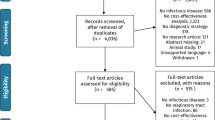Abstract
This paper highlights the need for validated models to demonstrate mucoactive drug efficacy in relieving respiratory tract infection (RTI) symptoms and suggests new concepts to further ongoing research. The review is based on the analyses of studies published on mucoactive drug in respiratory diseases, data supporting FDA’s expectorant monograph, and related US consumer use and attitude surveys. The changes in the volume and consistency of respiratory mucus during RTIs may result in ciliary dysfunction, mucus accumulation, and symptoms like cough and chest congestion. Mucoactive drugs can provide relief, but limited choices exist in the US, due to the unavailability of validated clinical models and unequivocal efficacy results. Ongoing developments have not provided definitive solutions, and Big Data analysis techniques may help overcome current clinical research limitations by identifying differentiating disease and patient factors to speed up the development process to substantiate the effectiveness of expectorant/mucoactive drugs in relieving RTI symptoms.
Similar content being viewed by others
References
Voynow JA, Rubin BK (2009) Mucins, mucus and sputum. Chest 135:505–512
Eccles R (2005) Understanding the symptoms of the common cold and influenza. Lancet Infect Dis 5:718–725
Rogers DF (2007) Mucoactive agents for airway mucus hypersecretory diseases. Respir Care 52:1176–1193
Pauwels RA, Buist AS, Calverley PM, Jenkins CR, Hurd SS, the GOLD Scientific Committee (2001) Global strategy for the diagnosis, management, and prevention of chronic obstructive pulmonary disease. NHLBI/WHO Global Initiative for Chronic Obstructive Lung Disease (GOLD) Workshop summary. Am J Respir Crit Care Med 163:1256–1276
Hull JD et al (2013) A survey of the experience and impact of acute upper respiratory tract infections on people in six countries in the 2011/2012 common cold and flu season. Open J Respir Dis 3:175–187
Witek TJ, Ramsey DL, Carr AN, Riker DK (2015) The natural history of community-acquired common cold symptoms assesses over 4-years. Rhinology 53:81–88
Consumer Survey, Reckitt Benckiser, 2014; data on file
Blaiss MS, Dicpinigaitis PV, Eccles R, Wingertzahn MA (2015) Consumer attitudes on cough and cold: US (ACHOO) survey results. Curr Med Res Opin 31(8):1527–1538. doi:10.1185/03007995.2014.1002558
Balsamo R, Lanata L, Egan CG (2010) Mucoactive drugs. Eur Respir Rev 19(116):127–133
Smith SM, Schroeder K, Fahey T (2012) Over-the-counter (OTC) medications for acute cough in children and adults in ambulatory settings. Cochrane Database Syst Rev 15(8):CD001831. doi:10.1002/14651858.CD001831
FDA Final Monograph (1989) Cold, cough, allergy, bronchodilator, and antiasthmatic drug products for over-the-counter human use
Cazzola M, Floriani I, Page CP (2010) The therapeutic efficacy of erdosteine in the treatment of chronic obstructive bronchitis: a meta-analysis of individual patient data. Pulm Pharmacol Ther 23:135–144
Poole P, Black PN (2010) Mucolytic agents for chronic bronchitis or chronic obstructive pulmonary disease. Cochrane Database Syst Rev 2:CD001287
Cazzola M, Calzetta L, Page C, Jardim J, Chuchalim AG, Rogliani P, Matera MG (2015) Influence of N-acetylcysteine on chronic bronchitis or COPD exacerbations: a meta-analysis. Eur Respir Rev 24:451–461
Biondi-Zoccai G, Lotrionte M, Landoni G, Modena MG (2011) The rough guide to systematic reviews and meta-analyses. HSR Proc Intensive Care Cardiovasc Anesth 3(3):161–173
Eccles R (2009) Over the counter medicines for colds. In: Eccles R, Weber O (eds) Common cold. Birkenhaeuser Verlag, Basel, pp 261–263
Finiguerra M, Morandini G (1982) Clinical Study Report. Guaifenesin vs. placebo in chronic bronchitis. Data on file, Reckitt Benckiser
Germouty J, Jirou-Najou JL (1987) Clinical efficacy of ambroxol in the treatment of bronchial stasis. Clinical trial in 120 patients at two different doses. Respiration 51(Suppl 1):37–41
Ericsson CH, Juhász J, Jönsson E, Mossberg B (1986) Ambroxol therapy in simple chronic bronchitis: effects on subjective symptoms and ventilatory function. Eur J Respir Dis 69:248–255
Thomson ML, Pavia D, McNicol MW (1973) A preliminary study of the effect of guaiphenesin on mucociliary clearance from the human lung. Thorax 28:742–747
Stey C, Steurer J, Bachmann S, Medici TC, Tramèr MR (2000) The effect of oral N-acetylcysteine in chronic bronchitis: a quantitative systematic review. Eur Respir J 16:253–262
Moretti M, Bottrighi P, Dallari R et al (2004) The effect of long-term treatment with erdosteine on chronic obstructive pulmonary disease: The EQUALIFE study. Drugs Exptl Clin Res 30:143–152
Robinson RE, Cummings WB, Deffenbaugh ER (1977) Effectiveness of guaifenesin as an expectorant: a cooperative double-blind study. Curr Ther Res 22(284):96
Dicpinigaitis PV, Gayle YE (2003) Effect of guaifenesin on cough reflex sensitivity. Chest 124:2178–2181
Troullos E, Baird L, Jayawardena S (2014) Common cold symptoms in children: results of an internet-based surveillance program. J Med Internet Res 16(6):e144
Albrecht HH, Vernon M, Solomon G (2012) Patient-reported outcomes to assess the efficacy of extended-release guaifenesin for the treatment of acute respiratory tract infection symptoms. Respir Res 13:118
Hoffer-Schaefer A, Rozycki HJ, Yopp MA, Rubin BK (2014) Guaifenesin has no effect on sputum volume or sputum properties in adolescents 1 and adults with an acute respiratory tract infection. Respir Care 59(5):631–636
Sox HC, Goodman SN (2012) The methods of comparative effectiveness research. Annu Rev Public Health 33:425–445
Patsopoulos NA (2011) A pragmatic view on pragmatic trials. Dialogues Clin Neurosci 13(2):217–224
Hamed AA, Wu X, Erickson R, Fandy T (2015) Twitter K-H networks in action: advancing biomedical literature for drug search. J Biomed Inform 56:157–168
Author information
Authors and Affiliations
Corresponding author
Ethics declarations
Conflict of Interest
Dr. Albrecht is currently consulting for Reckitt Benckiser, LLC. Although no support was received for the preparation of this publication, the company has supported a related oral presentation at the American Cough Conference, 2015.
Rights and permissions
About this article
Cite this article
Albrecht, H.H. Can Big Data Analyses Help Speed Up the Clinical Development of Mucoactive Drugs for Symptomatic RTIs?. Lung 194, 31–34 (2016). https://doi.org/10.1007/s00408-016-9846-7
Received:
Accepted:
Published:
Issue Date:
DOI: https://doi.org/10.1007/s00408-016-9846-7




